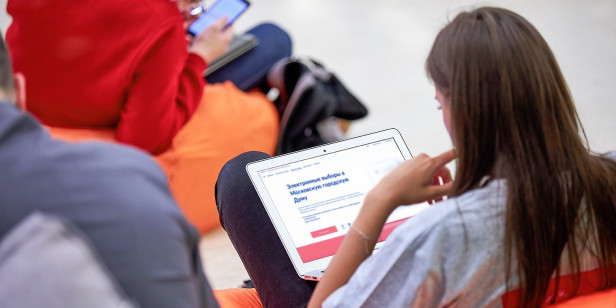Turnout in the online election of deputies to the Moscow City Duma was 92.3 percent (10,396 people).
Online voting was available to residents of three experimental constituencies in Moscow: No.1 (Kryukovo, Matushkino, Savelki Silino, Staroe Kryukovo); No. 10 (Northern, Lianozovo, Birilevo); and No.30 (Chertanovo Central, Chertanovo South).
In Constituency No.1, the turnout was 92.8 percent of registered users, while in Constituencies No.10 and No.30 it was 92.2 percent, and 92 percent, respectively.
For the first time, voting was held using blockchain technology, which guaranteed the security of the process and total anonymity of the voters. During voting, the user is redirected to the voting slip address by means of an anonymizer using a unique link created randomly from three sources: the user’s personal account in the mos.ru portal, the browser, and in the protected blockchain network. This makes it virtually impossible to trace the path of the voting slip. The user is given 15 minutes to fill out the slip.
There was a brief outage during the online election but this did not affect all users.
To participate in the online vote Muscovites submitted applications for inclusion in the register of online voters. This involved entering their passport data, address, personal insurance policy number, mobile telephone number and registered address in one of the three experimental constituencies in their personal mos.ru account, and then confirming their new user account in any My Documents city services centre.
Online voting statistics could be viewed in real time. In addition, on September 4 Moscow provided a hotline for queries relating to online voting in the City Duma elections.
Online Voting Ends in Moscow City Duma Elections





